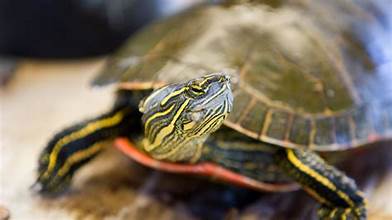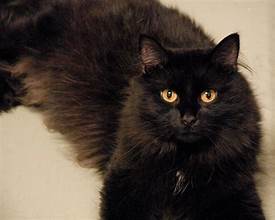Turtles are fascinating creatures whose behaviors and personalities reveal much about their unique adaptations and instincts. Whether you’re a curious pet owner or simply interested in understanding turtles better, diving into their swimming patterns, basking habits, and other behaviors can provide a window into their needs and communication.
1. Swimming Patterns: What Do They Mean?
Turtles are expert swimmers, especially aquatic species like Red-Eared Sliders and Painted Turtles. Observing their swimming behaviors can indicate health, stress, or environmental satisfaction.
Common Questions About Swimming Patterns:
- Why does my turtle swim frantically against the tank walls?
This behavior, often called “glass surfing,” might indicate stress, boredom, or a too-small enclosure. Adding plants, hiding spots, or increasing the tank size can help.

- Why is my turtle floating to one side?
Floating unevenly could signal respiratory infections or bloating, requiring immediate veterinary attention.
- Is it normal for turtles to be less active in colder water?
Turtles are ectothermic (cold-blooded), and their activity levels directly correlate with the water temperature. Ensure your water heater maintains the ideal temperature for their species.
2. Basking Habits: The Key to a Turtle’s Happiness
Turtles bask to regulate body temperature, absorb UVB rays, and dry off to prevent shell infections.
Common Questions About Basking Habits:
- Why does my turtle spend so much time basking?
Extended basking can be expected but may also indicate the water is too cold, making the basking spot more appealing. Check your tank’s water heater.
- Why won’t my turtle bask at all?
If your turtle avoids basking, the basking area might be too hot, hard to access, or lack proper UVB lighting. Ensure the basking platform is safe, stable, and properly illuminated.
- Do all turtles bask?
Aquatic turtles like sliders and cooters bask frequently, while semi-aquatic turtles like Box Turtles may do so less often.
3. Feeding Frenzy: Food-Related Behaviors
Watching turtles during feeding time can reveal much about their personalities and preferences.
Common Questions About Feeding Behaviors:
- Why does my turtle splash water during feeding?
Splashing is often excitement or a way to signal hunger. Some turtles develop this behavior over time, recognizing that splashing gets your attention.
- Why won’t my turtle eat?
Loss of appetite can be due to temperature changes, illness, or boredom with the food provided. Ensure a varied diet of pellets, fresh greens, and occasional protein.
- Why does my turtle beg for food constantly?
Turtles are opportunistic feeders and will often “beg” even if they’re not truly hungry. However, pet turtles are concerned about obesity, so be cautious not to overfeed them.
4. Digging and Burrowing: Instinct or Stress?
Digging is a standard turtle behavior, especially among females preparing to lay eggs.
Common Questions About Digging:
- Why is my turtle digging in the tank substrate?
This could be nesting behavior, stress, or an attempt to find a comfortable resting spot. Providing a separate nesting area for females can reduce this behavior.

- Do male turtles dig, too?
Yes, though it’s less common. Male turtles might dig to explore or create a hiding spot.
5. Interaction and Personality Traits
Turtles may seem stoic, but they possess distinct personalities and can even recognize their owners over time.
Common Questions About Turtle Personalities:
- Can turtles recognize their owners?
Yes! Many turtles learn to associate their owners with food and may swim to greet you or show excitement when you’re nearby.
- Do turtles like being handled?
Most turtles prefer minimal handling, as it can stress them. However, frequent, gentle interactions can gradually make them more comfortable.
- Why does my turtle hide all the time?
Shyness or hiding is often usual but could indicate stress from a noisy environment or a lack of hiding spots. Providing plants or caves can help your turtle feel secure.
6. Strange Sounds and Movements
Turtles might not be loud, but they can occasionally produce sounds or act peculiarly.
Common Questions About Odd Behaviors:
- Why does my turtle make hissing sounds?
Hissing is usually the result of air being expelled quickly when it retracts into its shells. It’s a defense mechanism and not a sign of aggression.
- Why does my turtle rub its face or shell on objects?
This might be an attempt to scratch an itch or signal skin shedding. Ensure water quality is good, as poor conditions can irritate their skin.
7. Seasonal Changes in Behavior
Turtles’ activity levels can change with the seasons, mimicking their natural hibernation patterns.
Common Questions About Seasonal Behaviors:
- Why is my turtle less active in winter?
Cooler temperatures can trigger brumation-like behaviors in pet turtles. Maintain consistent tank temperatures to avoid confusion.
- Do turtles need to hibernate?
Most pet turtles do not need to hibernate if kept in controlled environments. Wild turtles, however, hibernate to survive cold weather.
Key Takeaways for Turtle Owners
Understanding your turtle’s behaviors and personalities helps create a comfortable, healthy environment. Pay attention to:
- Environmental factors:
Proper tank size, temperature, and lighting.
- Dietary needs:
Balanced meals to meet nutritional requirements.
- Health cues:
Changes in behavior can often signal illness.
By observing and interpreting your turtle’s actions, you can better address their needs and enjoy a deeper connection with these remarkable reptiles.
Are you looking for more turtle care tips? Let us know! Whether you have questions about health, diet, or setting up the perfect habitat, we’re here to help.




